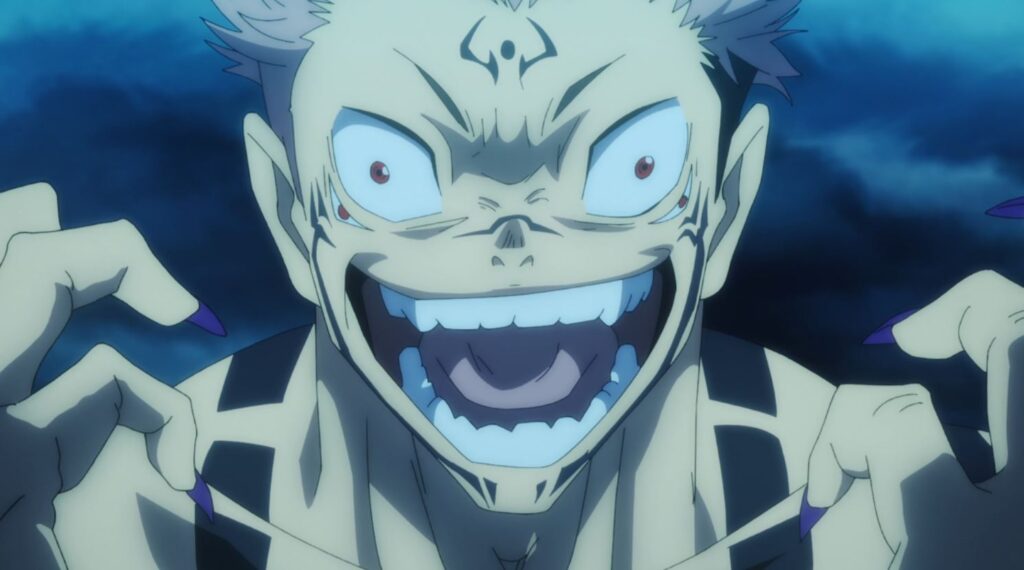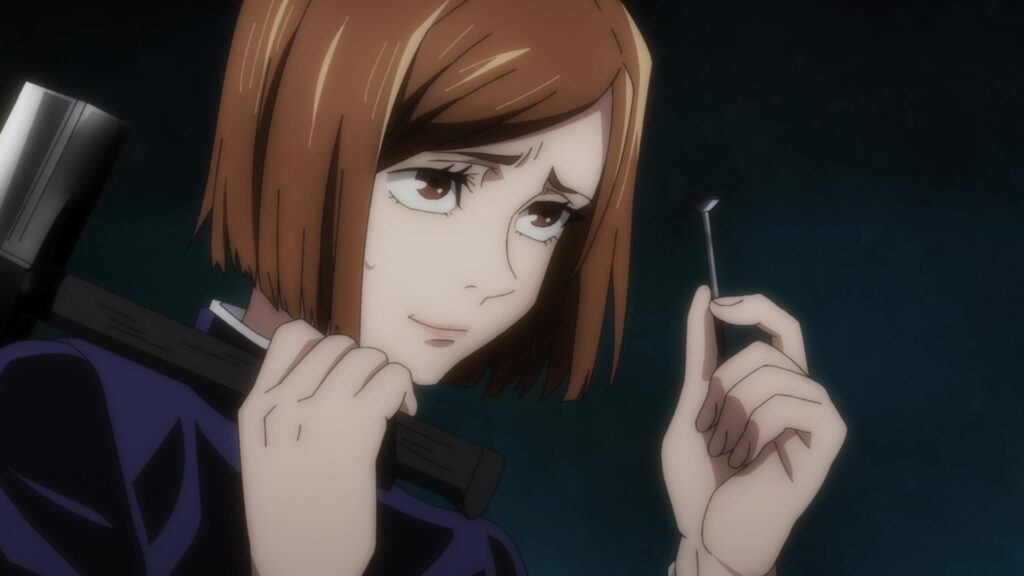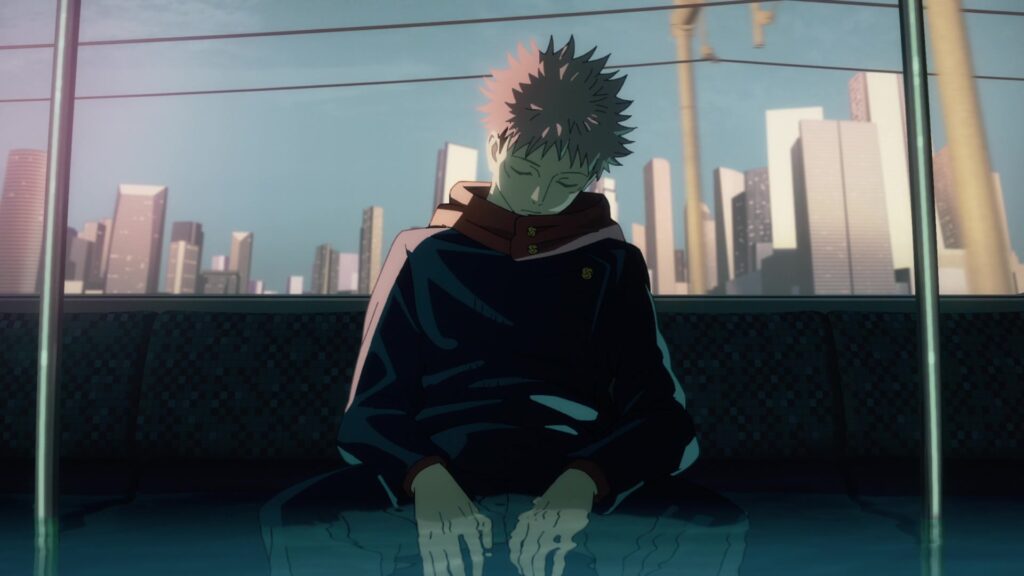
Jujutsu Kaisen is a hot mess – but an enjoyable one
Jujutsu Kaisen dominated early 2021, flooding my timeline again and again with fan art of Satoru Gojo and his ice-like eyes peering at me anytime I opened my phone. If it wasn’t social media, it was word of mouth from friends to family, expressing how much they enjoyed the whole series thanks to its characters and intense fight scenes. With the praise it received, I thought I would love it just as much as they did.
But that wasn’t the case. It was clear as I watched that the story paled in comparison to its character, unraveling on itself and leaving me with a disorganized mess, one in which I had no power to clean up. Still, between the mess, there were still memorable moments that helped remind me that there is always a brighter future ahead, even in a dismal world.
Written and illustrated by Gege Akutami and released as a manga in 2018, Jujutsu Kaisen follows the story of high schooler, Yuji Itadori. With an anime adaption released in October of 2020, You see Itadori’s journey in learning how to become a Jujutsu Kaisen after becoming the vessel of Sukuna, the world’s most powerful Cursed Spirit. With the help of his classmates, Megumi Fushiguro and Nobara Kugisaki, and his teacher, Satoru Gojo, Yuji Itadori learns how to become a strong fighter, the importance of responsibility, fighting on when you want to quit, and more.
Again, with its praise online, I was sure to love it right away! I did enjoy it, however, I did have some thoughts.
Jujutsu Kaisen was probably one of the hottest messes I’d seen in 2021, and there isn’t anything wrong with that. Keeping track of who is pulling strings, and who was doing what in this anime felt like a full-time job, bringing me back to my Univision telenovelas days. The fight scenes were choreographed beautifully, the intensity in each battle was a wonder to see on my screen, however once the brawling stopped, the mind-numbingly slow process of having to piece everything else together became a chore.
But I came to the realization that, ‘y’know, sometimes having junk food anime to watch because it looks cool is something we all need’. So I quickly tried to not think too hard about the plot too, and instead embraced the anime as a cool mindless watch. I mean, Junk food TV (think reality TV, competition shows, etc) is great for the brain, and not everything I watch needs to be this moving piece of media that’ll change my life for the better.

However, trying to rip myself away from the hands of the story is so hard when the characters are so enjoyable. I really wish that Nobara’s dedication to grow outside her judgmental small town, Megumi’s character development in learning that the world isn’t so black and white, Kiyotaka’s loyalty to his role as a Jujutsu Sorcerer and assistant, Maki’s drive to prove that even without being born with a gift she’ll do better than anyone else was enough for this anime to mean enough for me. I’m sad that it isn’t because the characters are all so admirably designed and you really cannot find one you don’t like – even the enemies can be pretty hard to dislike with the amount of care and thought put into them. Even so, it wasn’t enough to balance the tangled plot that got more confusing as each episode ended.
Still, I found that in spite of the drawbacks of the anime, there was one thing I liked so much that it was enough to get me to finish the series: Jujutsu Kaisen’s push to find fun in the face of constant darkness.
Outside of the flashy fights and intricate character designs, Jujutsu Kaisen’s plot goes through some really dark themes about death in humans that can be uncomfortable to see. Itadori experiences so much death in such a short time after his grandfather’s passing, and we see how that affects him each time. Yet while we see how much death being around Itadori gets in his head, the anime reminds Itadori and viewers that even when things seem bleak, the little silly moments sprinkled throughout convey there is still joy to be found. You’ll have guys starting fights based on your taste in women, introductions containing how much one loves Jennifer Lawrence, and witnessing little baby Curses learn how to play Pop-Up Pirate in a playground. The playfulness in between the more distressing moments in Jujutsu Kaisen shows how much light there can be in the dark, but sometimes we miss it because of how tunnel-visioned we might be.
Moreover, Jujutsu Kaisen shows how easy it is to see nothing but hate and emptiness when you’re on your own. When the world effortlessly makes everything around you fall apart, having someone who can look at things differently can change your point of view in a snap, either through genuine care or through manipulation. While trying to grow, there is always a doubt in the back of your head trying to eat away at any happiness, confidence, or pride you develop. And during these times where we are vulnerable, that doubt eats more and more, and it’s hard to find the good in anything.

However, like in Jujutsu Kaisen, we have friends like Itadori who find the eventful in the uneventful, willing to make you laugh no matter how dim the light in the room might be. And honestly, a good laugh is sometimes what we need to remind ourselves things are going to be okay. The characters understand that outside of Itadori being Sukuna’s vessel, he is special in his own way, often through his empathetic way of thinking and finding fun in any situation. It pushes the characters around him to have this thought as well, making Itadori’s tender care infectious.
While the storyline of Jujutsu Kaisen left me puzzled, the constant nudging that living life is full of surprises and joy, as well as some gruesome fights, made it a whirlwind of an anime I could get behind.
You can watch Jujutsu Kaisen now on Crunchyroll and Netflix.





